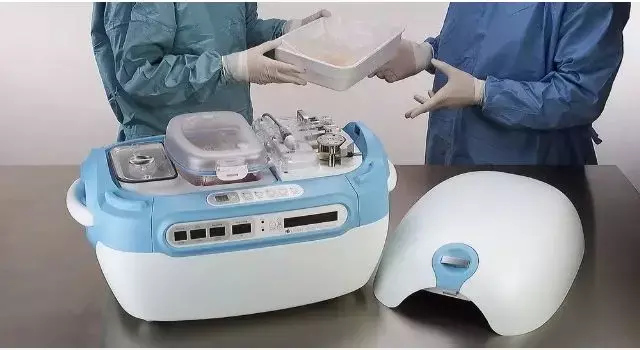- Home
- Medical news & Guidelines
- Anesthesiology
- Cardiology and CTVS
- Critical Care
- Dentistry
- Dermatology
- Diabetes and Endocrinology
- ENT
- Gastroenterology
- Medicine
- Nephrology
- Neurology
- Obstretics-Gynaecology
- Oncology
- Ophthalmology
- Orthopaedics
- Pediatrics-Neonatology
- Psychiatry
- Pulmonology
- Radiology
- Surgery
- Urology
- Laboratory Medicine
- Diet
- Nursing
- Paramedical
- Physiotherapy
- Health news
- Fact Check
- Bone Health Fact Check
- Brain Health Fact Check
- Cancer Related Fact Check
- Child Care Fact Check
- Dental and oral health fact check
- Diabetes and metabolic health fact check
- Diet and Nutrition Fact Check
- Eye and ENT Care Fact Check
- Fitness fact check
- Gut health fact check
- Heart health fact check
- Kidney health fact check
- Medical education fact check
- Men's health fact check
- Respiratory fact check
- Skin and hair care fact check
- Vaccine and Immunization fact check
- Women's health fact check
- AYUSH
- State News
- Andaman and Nicobar Islands
- Andhra Pradesh
- Arunachal Pradesh
- Assam
- Bihar
- Chandigarh
- Chattisgarh
- Dadra and Nagar Haveli
- Daman and Diu
- Delhi
- Goa
- Gujarat
- Haryana
- Himachal Pradesh
- Jammu & Kashmir
- Jharkhand
- Karnataka
- Kerala
- Ladakh
- Lakshadweep
- Madhya Pradesh
- Maharashtra
- Manipur
- Meghalaya
- Mizoram
- Nagaland
- Odisha
- Puducherry
- Punjab
- Rajasthan
- Sikkim
- Tamil Nadu
- Telangana
- Tripura
- Uttar Pradesh
- Uttrakhand
- West Bengal
- Medical Education
- Industry
Hypothermic perfusion helps reduce complications in liver transplant patients: NEJM

Hypothermic oxygenated machine perfusion leads to a lower risk of nonanastomotic biliary strictures following the transplantation of livers obtained from donors after circulatory death than conventional static cold storage,suggests the findings from a recent study published in the New England Journal Of Medicine.
Transplantation of livers obtained from donors after circulatory death is associated with an increased risk of nonanastomotic biliary strictures. Hypothermic oxygenated machine perfusion of livers may reduce the incidence of biliary complications, but data from prospective, controlled studies are limited.
In this recently conducted multicenter, controlled trial, researchers randomly assigned patients who were undergoing transplantation of a liver obtained from a donor after circulatory death to receive that liver either after hypothermic oxygenated machine perfusion (machine-perfusion group) or after conventional static cold storage alone (control group).
The primary end point was the incidence of nonanastomotic biliary strictures within 6 months after transplantation. Secondary end points included other graft-related and general complications.
Data analysis revealed the following facts.
- A total of 160 patients were enrolled, of whom 78 received a machine-perfused liver and 78 received a liver after static cold storage only (4 patients did not receive a liver in this trial).
- Nonanastomotic biliary strictures occurred in 6% of the patients in the machine-perfusion group and in 18% of those in the control group (risk ratio, 0.36; 95% confidence interval [CI], 0.14 to 0.94; P=0.03).
- Postreperfusion syndrome occurred in 12% of the recipients of a machine-perfused liver and in 27% of those in the control group (risk ratio, 0.43; 95% CI, 0.20 to 0.91).
- Early allograft dysfunction occurred in 26% of the machine-perfused livers, as compared with 40% of control livers (risk ratio, 0.61; 95% CI, 0.39 to 0.96).
- The cumulative number of treatments for nonanastomotic biliary strictures was lower by a factor of almost 4 after machine perfusion, as compared with control.
- The incidence of adverse events was similar in the two groups.
For the full article follow the link: DOI: 10.1056/NEJMoa2031532
Primary source: New England Journal Of Medicine
Dr Satabdi Saha (BDS, MDS) is a practicing pediatric dentist with a keen interest in new medical researches and updates. She has completed her BDS from North Bengal Dental College ,Darjeeling. Then she went on to secure an ALL INDIA NEET PG rank and completed her MDS from the first dental college in the country – Dr R. Ahmed Dental College and Hospital. She is currently attached to The Marwari Relief Society Hospital as a consultant along with private practice of 2 years. She has published scientific papers in national and international journals. Her strong passion of sharing knowledge with the medical fraternity has motivated her to be a part of Medical Dialogues.
Dr Kamal Kant Kohli-MBBS, DTCD- a chest specialist with more than 30 years of practice and a flair for writing clinical articles, Dr Kamal Kant Kohli joined Medical Dialogues as a Chief Editor of Medical News. Besides writing articles, as an editor, he proofreads and verifies all the medical content published on Medical Dialogues including those coming from journals, studies,medical conferences,guidelines etc. Email: drkohli@medicaldialogues.in. Contact no. 011-43720751


